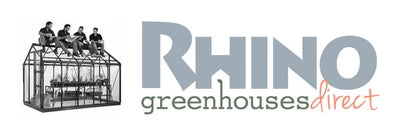Herbs are a wonderful, flavoursome addition to many culinary dishes, savoury and sweet, and are easy to buy off the shelf. But have you ever thought of growing your own herbs? There’s nothing better than fresh herbs to enhance a meal or decorate a cocktail and you have the added benefit of having them available on your doorstep.

Herb gardening is more than just throwing a few herb plants into a pot or in a bed in the garden. There are a variety of factors to consider, like sunlight and space, care and harvesting, as well as choosing the right herbs for your needs. So, how do you create an herb garden and what herbs should you be planting?
Herb gardening and its benefits
Did you know there are more than 40 different herbs you can grow in the UK? According to a survey, 53% of people are already growing herbs in their gardens in the UK. A lot of herbs are perennial and grow all year round, whilst others biennial or are annual and need to be replaced. Some herbs like hot, sunny locations while others prefer full shade, and there are the ones that like both.
Many herb plants have a lovely aromatic scent and bright flowers, with varied coloured leaves, too. Fresh herbs are so much richer in flavour than dried herbs and are a great addition to many food dishes. They can also be used to treat ailments as part of herbal medicine, as well as helping with hay fever relief and aiding the immune system.
Apart from the feeling of satisfaction you get from growing your own herbs, there is a range of benefits to herb gardening, including:
- Many herbs are easy to grow and need little attention to thrive.
- Herbs are nutrient-rich and flavoursome.
- A variety of herbs can be grown indoors or outdoors, in pots, greenhouses and small spaces.
- It saves money – herbs bought in stores are quite expensive.
- Constant supply of a variety of herbs.
The best time of year to start your herb garden is the spring and they will flourish over the summer months, but you can start growing them any time of the year indoors or in greenhouses. But what else do you need to think about when selecting the herbs to grow?
What to consider when selecting your herbs
As with plants, different herbs will thrive in different conditions. So, what do you need to consider before you start growing your herbs?
- The first thing to consider is where you’re going to plant and grow herbs. They need to be easily accessible and harvested when you need them. So, decide whether you want to plant in tubs and decorative pots or perhaps a raised bed, a greenhouse or indoors on a windowsill.
- Sunlight or shade? Most herbs like a sunny place, or at least with plenty of light. It’s probably better to avoid full sunlight all day unless the herb you’re growing particularly likes that.
- Herbs thrive in well-drained, fertile soil that retains moisture, so a general compost is ideal. They also like lots of organic matter to feed off as well, which is why growing them in pots or raised beds is a better choice, or even grow bags.
- Some herbs grow far quicker and wider than others, like mint and parsley, so will need more space. Others, like thyme and chives, don’t need quite as much space. So, when laying out your herb garden, think about how you’re going to space them out.
You may need more than one pot or herb garden to get the best benefits and grow lots of different types of herbs.
The most popular homegrown herbs for your garden
The most popular herbs to grow in your herb garden are:
- This versatile herb grows best in well-drained soil in containers or indoors, in a sheltered position but with plenty of light and warmth. Chives and parsley are excellent companion herbs for basil and it's delicious with tomatoes.
- An all-year-round herb, it has a wonderful scent and needs little attention to thrive. But it can grow quite big so allow plenty of space. Add to soups and stews, add to your olive oil to drizzle over salads and of course, it compliments your potatoes.
- This herb needs a grittier soil or compost and doesn’t grow well outside in the winter so, bring it indoors in pots. You will need to split the plant and repot every 3-4 years to maintain a good supply of this herb. It’s got a very distinctive liquorice flavour, and scent, and goes well with fish, meat, eggs and sauces.
- Easy to grow and an ideal companion to basil, it can be grown in any bright position. But you will need to cut it back every so often to boost its growth and keep it tidy. It has an onion-like flavour and is soft so add as a last ingredient towards the end of cooking to retain its benefits. It’s a great addition to soups, salads and omelettes.
- This herb makes a good trio with chives and basil. It loves a bright, sunny position, indoors or outdoors, in well-drained soil. But it doesn’t like really cold weather and frosts so either bring it indoors, in a greenhouse or move to a shaded position in winter. It’s delicious in everything, from pasta dishes and casseroles to salads, sauces and pesto.
- An extremely popular herb, start this plant in a greenhouse or indoors and only move outdoors in a warm, sunny position when the frosts have gone. It likes most soils but be careful not to over-water it. The herb goes well with a wide variety of dishes including pasta and pizza, meat, stews and soups.
Other popular herbs to cook with include mint, chervil, thyme, sage, lemon balm, dill, coriander and lovage.
Easy herbs for beginners
If you’re just starting on your herb-growing journey, begin with herbs that are easier to grow, including:
- Mint is probably the easiest of all herbs, but it grows ferociously so, make sure you either allow plenty of room in a bed of herbs or individually in its own pot.
- Thyme is an easy one to grow from seed and likes containers or pots, but don’t over-water it.
- Oregano is as popular as it is easy to grow. It is a perennial so will always come back if grown outdoors. Keep it well-drained and harvest regularly to boost growth.
- Rosemary is another easy herb to grow, and it has a glorious fragrance. Well-drained compost suits it best and is also drought-resistant, ideal for climate change.
Using your homegrown herbs
Homegrown herbs can be used in multiple ways. They are a great and delicious addition to many different culinary dishes, adding a multitude of different flavours. They can be used straight from the garden, greenhouse or windowsill but do give them a wash first. Either chop them up and sprinkle them into your dishes, or keep the leaves whole and mix them in. Herbs, like rosemary, are great rubbed into meat or fish before grilling, baking or roasting. Alternatively, use a pestle and mortar to mix them into a paste, such as pesto.
Herbs can also be used medicinally, and many are known to help a wide variety of ailments and conditions. Often mixed into a paste or brewed to make tea, they can also be used in bath water or in lotions. Many herbs can help with viruses, infections, skin conditions and allergies
Greenhouses often present the ideal conditions for growing herbs all year round, so you have a constant supply whenever you need them. At Rhino Greenhouses Direct, we have a large selection of greenhouse shelving or alpine staging, blinds or shades to keep out direct sunlight, greenhouse heaters and even rainwater collection solutions.




